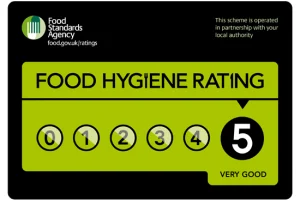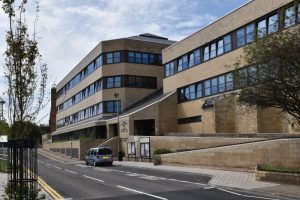THE REMOVAL of a comprehensive school from special measures after six years has been described as “the beginning of bigger and better things”.
Cwmbran High School has been subject to enhanced monitoring by school inspectors Estyn since it was placed in the category of most serious concern in 2018.
Estyn has now published its latest follow up report and said the school is “judged to have made sufficient progress” in addressing shortcomings identified in the 2018 inspection and confirmed it is removed from the list of schools requiring special measures
Headteacher, Matthew Sims, who took over at the school in September 2022, said: “We are delighted that the hard work, dedication and commitment of our staff and pupils has led us to this point; this is the beginning of bigger and better things for our young people as we strive purposefully towards future successes.”
Inspectors visited the 1,100 pupil school in March and stated in their report: “The headteacher, supported by the senior leadership team, has established a clear and ambitious vision for school improvement.”
The school’s progress has been the subject of continued debate among Torfaen Borough councillors with the authority’s April meeting, held just days before the report was published, told education officials at the Civic Centre in Pontypool were “pleased with progress” at the school.
Councillor Richard Clark, the Labour cabinet member responsible for education, told the meeting he was “ashamed Cwmbran High has been in special measures the length of time it has”.
Reform UK councillor for Trevethin and Penygarn Stuart Keyte told the meeting: “I’m pleased to hear progress is being made but it is six years, if that is what success looks like then I wouldn’t like to see what failure is, it’s a disgrace to our children.”
Last year the council also reported improvements and said it was pleased with updates from Estyn but Cllr Clark declined to make any prediction as to when it would be removed from special measures.
The five recommendations made in the “core inspection” in 2018 were to improve the standard of pupils’ skills, particularly writing, and numeracy; improve behaviour and disrespectful attitudes of a few pupils in a minority of lessons; ensure the literacy and numeracy framework is implemented fully; address shortcomings in teaching to ensure pupils make good progress in all lessons and improve the consistency of middle managers, particularly in planning for improvement.
The inspectors found teaching and learning has improved but noted in a minority of lessons pupils make limited progress, “mainly because teachers’ expectations are not high enough or because pupils do not engage well enough in their learning”.
They also noted “progress of pupils’ numeracy skills is sometimes negatively impacted by weaker teaching”.
Pastoral leadership has been strengthened since the appointment of new leadership which inspectors said has helped improve behaviour and engagement in lessons but noted while the school has begun to improve attendance it “remains substantially below that prior to the pandemic”.
While development of pupils’ literacy skills has been prioritised Estyn acknowledged “staffing challenges” while opportunities to use data-handling skills have also been identified across the curriculum although using other numeracy skills in the same way is an early stage of development.
It was also noted the newly established governing body, put in place after interim arrangements had to be made as part of the improvement process, “provides valuable support and suitable levels of challenge to senior leaders” and holding them to account on improvement priorities.
Improvement in management, including between senior and middle leaders, was also noted and where variation in practice remains it is reducing “due to more focused support and challenge”.
















